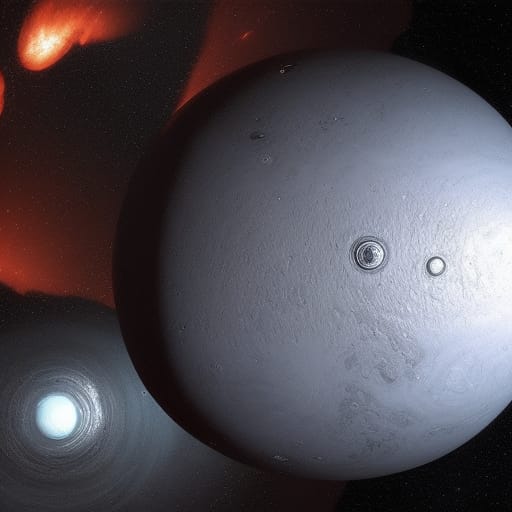Space: Planet X

Planet X, also known as Planet Nine or Nibiru, is a hypothetical planet that has not been directly observed or confirmed. The idea of its existence is based on the observed clustering of certain trans-Neptunian objects (TNOs) in the outer regions of the solar system. Here's what you should know about the concept of Planet X:
Orbital anomalies: The existence of Planet X was first proposed to explain apparent anomalies in the orbits of certain TNOs. Some scientists believe that the gravitational influence of a large, undiscovered planet could be responsible for these peculiar orbits.
Estimated properties: Based on mathematical models and simulations, Planet X, if it exists, is estimated to be roughly 5 to 10 times the mass of Earth and have a highly elliptical orbit. Its distance from the Sun could be 20 times farther than Neptune's, and it could take around 10,000 to 20,000 Earth years to complete one orbit.
Observational challenges: The search for Planet X is complicated by the fact that it would be located in a region of space with very low light levels, making it difficult to observe with telescopes. Additionally, its predicted orbit would cover a vast area, making it a challenging task to pinpoint its exact location.
Alternative explanations: Some scientists argue that the observed clustering of TNOs might not be due to the presence of an undiscovered planet. Instead, they propose that the distribution could be the result of observational bias or a natural outcome of the solar system's formation and evolution.
Controversy and confusion: The term "Planet X" has been used in various contexts over the years, leading to some confusion. In the early 20th century, it referred to a hypothetical planet beyond Neptune that was believed to influence the orbits of Uranus and Neptune. This idea was eventually disproven when the discovery of Neptune's moon, Triton, and refined measurements of Neptune's mass accounted for the observed discrepancies. Additionally, some conspiracy theories and pseudoscientific claims have associated the name "Planet X" or "Nibiru" with an impending doomsday scenario, which is not supported by scientific evidence.
Ongoing search: Despite the lack of direct observational evidence, the search for Planet X continues. Astronomers are using advanced telescopes and data from sky surveys to look for signs of this hypothetical planet in the outer reaches of the solar system. If it is eventually discovered, it would be a significant finding that could reshape our understanding of the solar system's formation and evolution.